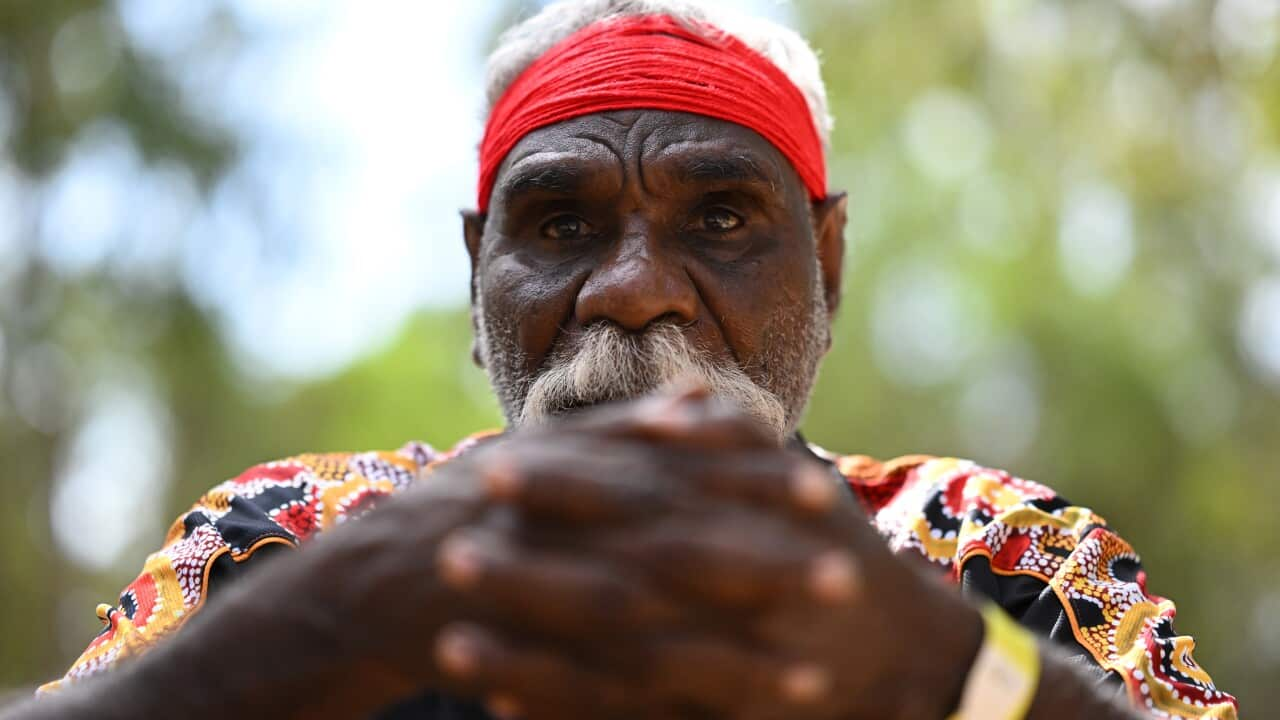Warning: this article contains the names of First Nations people who have died.
More than three months after Kumanjayi White died after being restrained by police on the white linoleum floor of a Coles supermarket in Mparntwe/Alice Springs, his cause of death is still officially unknown.
Since 27 May, NT Police have been investigating the circumstances of White's death, the outcome of which will determine whether charges are laid against the two officers involved. While the investigation is pending, the two officers involved remain on active duty.
By contrast, it took four days for NT Police to press charges against Officer Zachary Rolfe for the fatal shooting of White's cousin, Kumanjayi Walker, in 2019.
Both Warlpiri men, White and Walker, died while in the custody of NT police officers, with Rolfe later acquitted of murder charges. The lack of transparency around this latest police-led investigation, amid the plethora of video and eyewitness evidence from the supermarket, has White's family and advocates questioning why the process has been so delayed.
"I know they did something. They haven't been giving us any idea of what happened," says White's grandfather, Warlpiri Elder Ned Jampijinpa Hargraves.
"It's disgusting."
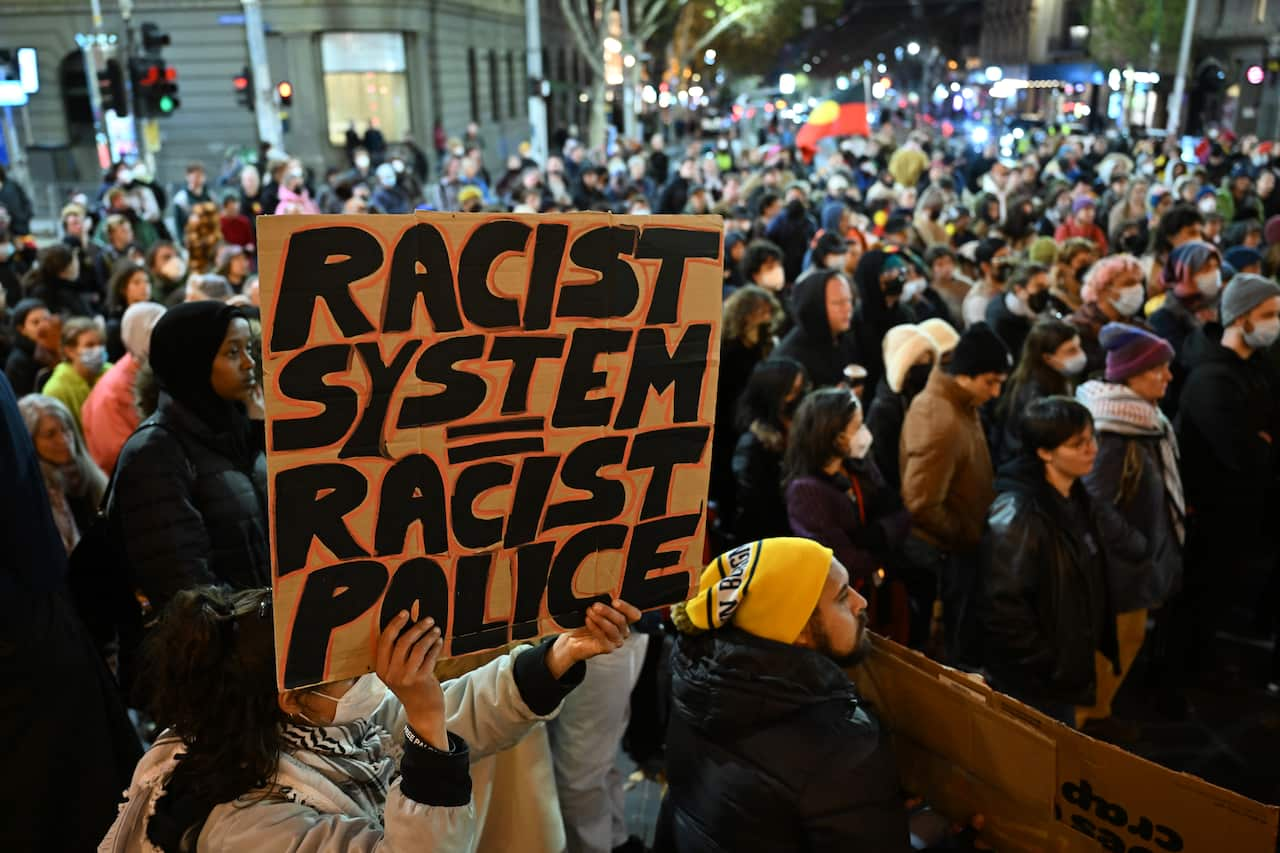
White's death in custody marks a painful new chapter in the ongoing tensions between police and Aboriginal communities in the Northern Territory, and the months since have encapsulated the push and pull between those calling for reform and the new tough-on-crime agenda of the Country Liberal Party (CLP) government.
As the wheels of justice turn slowly and in an unclear direction, White's family has taken matters into their own hands — launching their own legal bid for truth-telling and accountability by taking the NT government to the Federal Court.
A 'considerable amount of information'
In late August, NT Police told the media that inquiries into the 24-year-old's death were at an "advanced state", and that they were waiting for pathology results from interstate to determine his official cause of death because the initial autopsy was inconclusive.
A spokesperson for NT Police told SBS News they acknowledge the community concern and interest in the circumstances surrounding the death of Kumanjayi White.
The circumstances do not lack evidence or witnesses. The NT's assistant police commissioner, Travis Wurst, told reporters in the days following White's death that police were dealing with a "considerable amount of information".
The known evidence includes Coles' CCTV and body-worn camera footage from security guards at the supermarket. The incident, which happened in the confectionery aisle at 1.10pm on 27 May, was also witnessed by multiple people.
In the account given by Wurst, the 24-year-old was seen putting items down his shirt. An altercation occurred at which point two police officers in plain clothes "rendered assistance".
White was then "taken to the ground", according to Wurst, where he remained for several minutes.
Witnesses told the NT News newspaper that a police officer allegedly placed his knee behind White's head while restraining him, while onlookers called out: "This fella has a disability, he's disabled, just be a bit more careful."
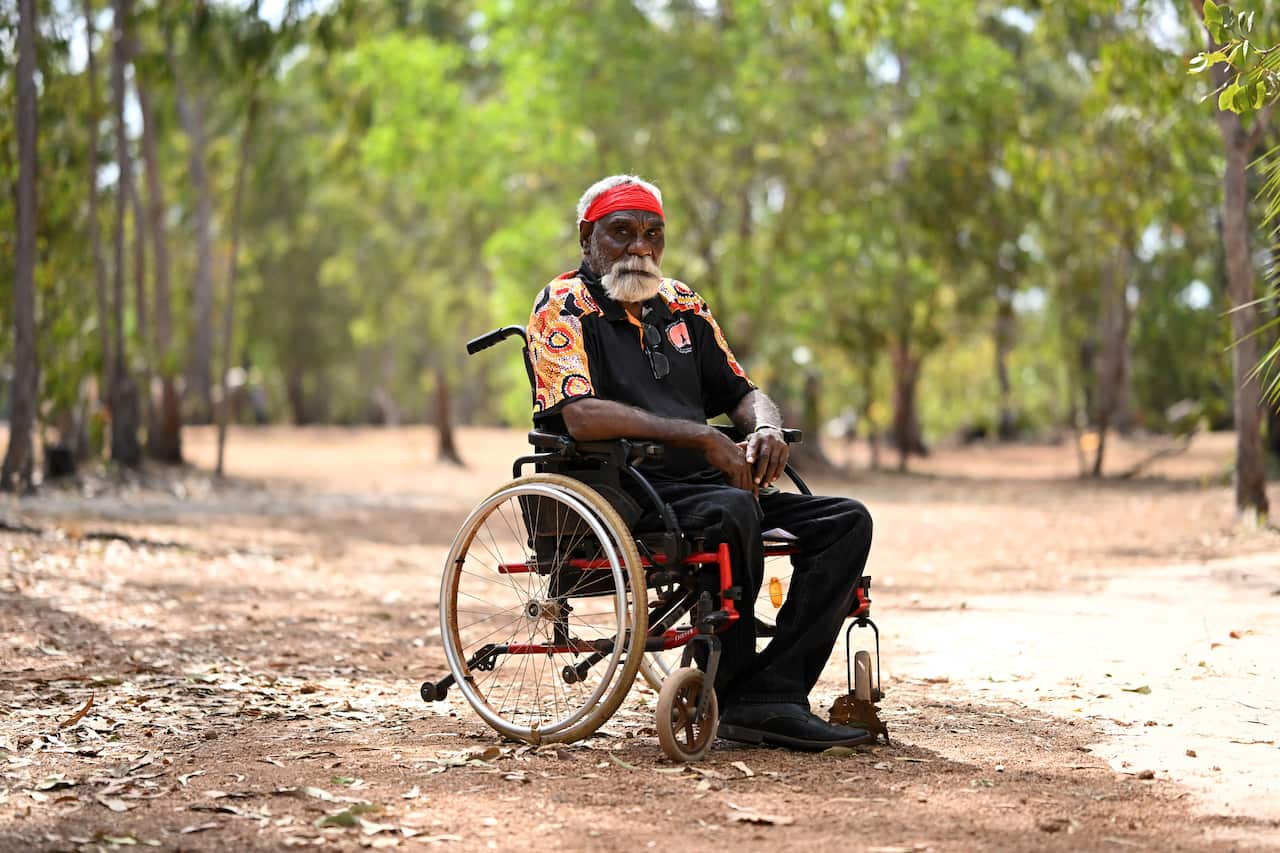
"At this point, it was determined the male had lost consciousness," Wurst would later tell the media.
An hour later, White was declared dead at Alice Springs Hospital.
An independent investigation
Kumanjayi White's death is one of 23 Aboriginal deaths in custody this year alone. Days after White's death, a senior Wadeye man was taken in protective custody in Darwin, where he died a week later. There have been 608 Aboriginal deaths in custody since the 1991 Royal Commission.
At vigils mourning the young Warlpiri man in Mparntwe and across the country, his family have repeated calls for an independent investigation to be conducted at arm's length from NT police.
"We don't trust the police actually doing the investigation. We don't want that," Hargraves tells SBS News.
"We want to get someone independent, someone not from the Northern Territory."
The calls have been backed by the Central Land Council, which has argued federal funding should be withheld from the NT until an independent investigation is set up. Federal member for Lingiari Marion Scrymgour has suggested the Australian Federal Police could run it.
Off the back of these calls, Indigenous Affairs Minister Malarndirri McCarthy told ABC Radio in June that the federal government needed to show leadership regarding Aboriginal deaths in custody.
NT Police rejected the request. At budget estimates, commissioner Martin Dole said the calls were "misinformed".
"There is plenty of oversight to those investigations with the mechanisms available already in the Northern Territory," he said.
In the meantime, NT Police announced that the coronial investigation — a requirement of all deaths in custody and during police operations — was on hold while the criminal investigation took place.
NT anti-discrimination commissioner Jeswynn Yogaratnam told SBS News the family is not being heard.
"I think [the police] response is slow in terms of addressing community concerns," he says.
"It seems to be taking longer than what the community expects. So, in which case, we need to ask the question, 'why?'"
What the police did next
In response to questions about its investigation, NT Police told SBS News it has been in regular contact with the family. When asked when an update can be expected, it said no updates will be given this week before White's funeral, set to be held on Friday, out of respect for the family.
The force did not respond to questions about whether the two officers involved have been stood down while the investigation takes place.
"What we understand is that the two officers are still very much within the police force and carrying out functions," Yogaratnam says.
One of the officers reportedly involved is NT police prosecutor Steven Haig. In August, the ABC reported that Haig had signed off on a charge against White's father that was "improperly laid" and later dismissed in Alice Springs Local Court.
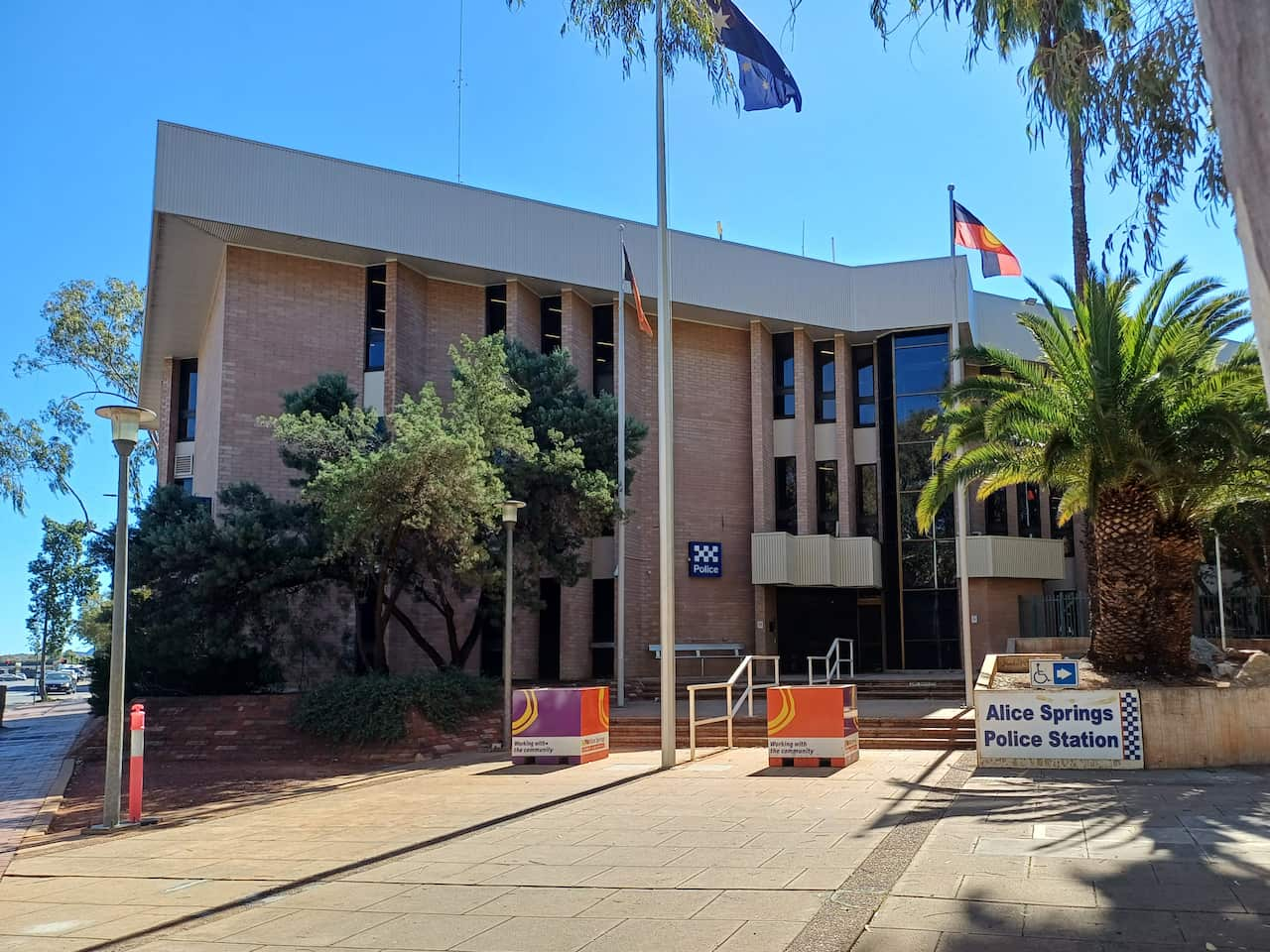
At budget estimates, Dole said that a criminal investigation doesn't automatically mean a police officer will be stood down.
"It depends on how much evidence is available and what stage the criminal investigation reaches before that decision is made."
This is unacceptable to White's family, who, in their application to the Federal Court, allege the officers "acted unlawfully in apprehending Kumanjayi White, taking him into their custody and applying force to him such as to cause the loss of his life".
Compounding the family's anger and grief is the fact that White lived with cognitive disabilities and had been placed in full-time state care in Alice Springs at the time of his death.
"He had a disability; they [the police] could have stopped and said: 'Can I help you?'" Hargraves says.
"But they'll never be nice. They'll be rough."
Damian Griffis is the CEO of First Peoples Disability Network and agrees that both NT Police and the Territory government owe the community answers.
"We think what has happened here is a tragic example of the police not being aware of how to interact appropriately with mob with disability, and this has resulted in a young man dying in custody," he says.
As a First Nations person with disability, you're much more likely to end up in the back of a police paddy wagon than a supportive disability environment.
Shattered trust
White's death has devastated locals in Yuendemu, the remote NT community where the 24-year-old hailed from.
The news came just as the NT coroner was preparing to deliver findings from an inquest into the death in custody of another Warlpiri man from the community: Kumanjayi Walker. His inquest is one of the most extensive investigations into police racism ever conducted in the Territory.
Walker, White's cousin, was fatally shot at age 19 by officer Zachary Rolfe, who was charged with and later acquitted of murder.
The coroner's 683-page report delivered in July made 33 recommendations based on its conclusion that Walker's death was "avoidable" and that Rolfe "behaved in a way that did not prioritise safety in the arrest of a vulnerable teenager like Kumanjayi".
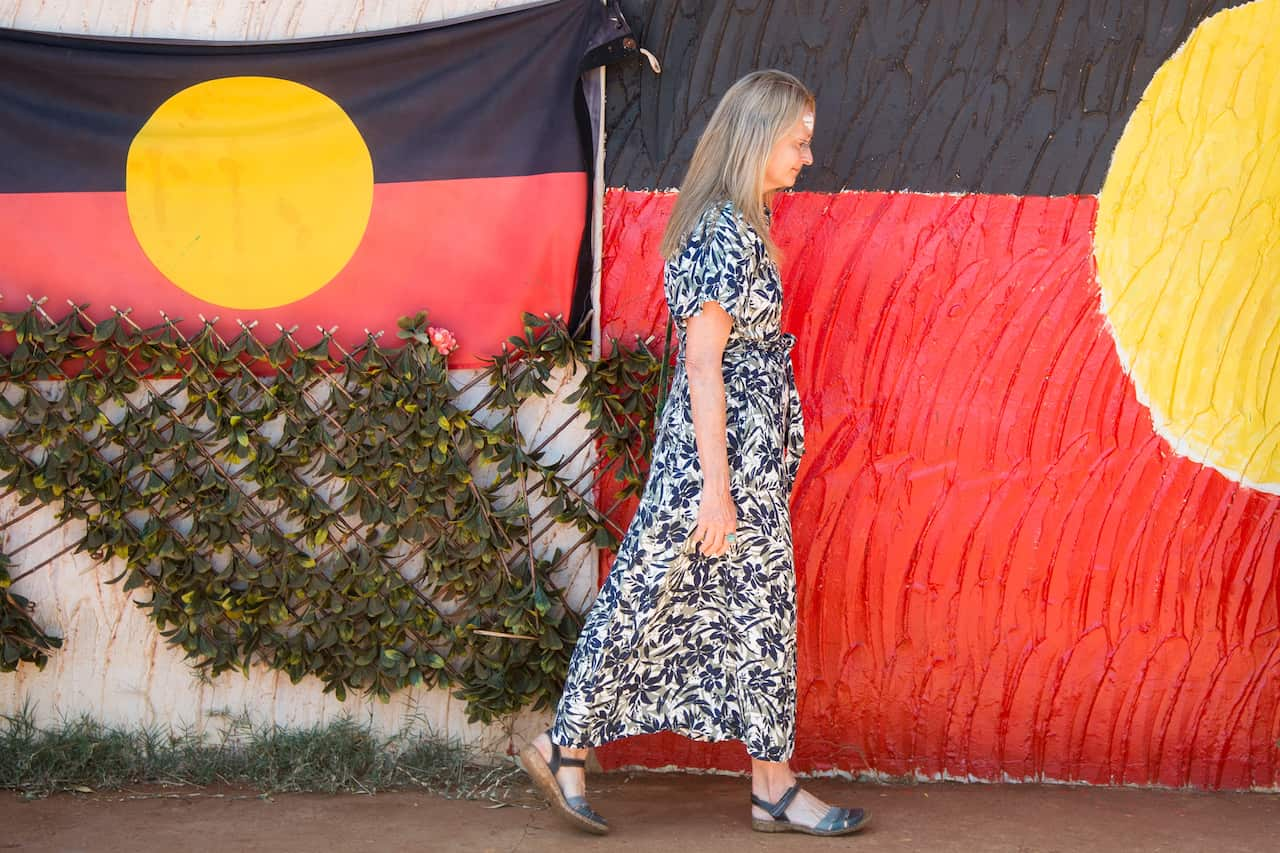
Before those findings were handed down, NT Police had started taking its own steps towards repair, including appointing South Australia's first-ever female Aboriginal police officer, Arrernte woman Leanne Liddle, as head of the NT's Community Resilience and Engagement Command.
Liddle was tasked with creating an anti-racism strategy, which NT Police told SBS News will be released imminently.
One of the strategy's goals is for 30 per cent Aboriginal representation in the force. The figure currently sits at around 11 per cent, based on figures from the inquest and NT Police.
The harms of systemic racism were also acknowledged in 2024 when then NT police commissioner Michael Murphy gave a public apology at Garma festival.
"Truth-telling is a key part of the reconciliation process, and I am committed to ensuring that the police service acknowledges and learns from its past mistakes," Murphy told attendees.
NT anti-discrimination commissioner Yogaratnam says the apology was a "long time coming".
However, the CLP's landslide election victory in 2024 signalled a shift in priorities for the Territory, veering away from reconciliation towards a stricter law and order agenda. The raft of changes includes lowering the age of criminal responsibility, stricter bail reforms, and the return of spit-hoods.
In March 2025, Murphy was stood down as commissioner after an NT ICAC probe found he had helped elevate a close friend to a high-ranking position, calling the move "incompetent".
Since then, Yogaratnam says it's not clear what has happened to the reform and promises of the apology.
"And this is where the problem lies when you have an internal organisation trying to reform itself.
"The accountability, independence and visibility of what's happening in relation to reform is unknown."
NT government taken to court
The White family are not willing to wait for NT Police to decide what killed Kumanjayi White.
In July, a family member who wishes to remain anonymous lodged a civil proceeding in the Federal Court against the NT government. It was lodged before the two-month deadline from the date of White's death, as mandated by the state's Police Administration Act regarding civil suits against NT police.
Lawyer George Newhouse, who is acting for the family in other matters, says NT is the only state or territory in Australia with such a strict time restriction.
"These are discriminatory laws and NT is the only jurisdiction that takes active steps to lock First Nations and other marginalised people out of the justice system," he said.
In application documents seen by SBS News, the family is seeking a declaration regarding the police officers' roles in White's death, as well as compensation, including burial costs and aggravated damages.
Answers will have to wait until a hearing in early November, or until the police announce the outcome of their inquiries — whichever comes first.
In the meantime, Hargraves and a number of the Yuendumu community will be travelling to Darwin to take their cries for justice directly to the NT parliament.
"We know them. We know they won't give it [the information] to us. They said they were looking into it, it's been three months. It's too long," he says.
It makes me so frustrated, so angry.
Readers seeking support can ring Lifeline crisis support on 13 11 14 or text 0477 13 11 14, visit lifeline.org.au or find an Aboriginal Medical Service here. Resources for young Aboriginal and Torres Strait Islanders can be found at Headspace: Yarn Safe.
For the latest from SBS News, download our app and subscribe to our newsletter.
